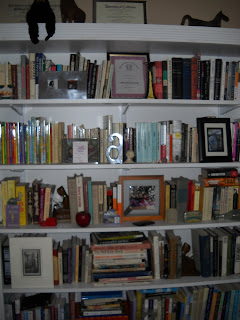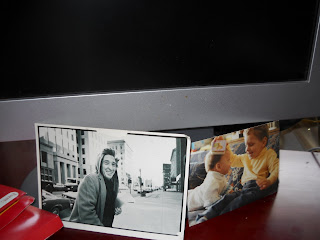This weekend marks Robert’s and my five-year anniversary. We met via the Internet, Robert after fifteen years of what he likes to call “power-dating,” I after a dismal four months, during which time I met a variety of men clearly put on this earth to dissuade any woman from even so much as thinking about dating ever again. Occasionally I wonder about them: what they’re doing now, if any of them found any takers.
This is what I would say to them, if I could.
--If you are 70, do not say you want to date women 47 and younger;
--If you are 70, do not say you are 53;
--Do not tell your date that the reason you don’t have any male friends is that men are jealous of how good-looking you are;
--Do not tell your date that you are giving away most of your possessions because “as long as I have my computer and my antique sword, I’ll be fine”;
--Do not meet your date through a Jewish dating service and then, over coffee, respond to her story about a skinflint by saying, “He’s Jewish, right?”;
--Do not call your date forty-five minutes after she tells you what an asshole you are for making anti-semitic remarks and start to tell her about a dream you had;
--Do not neglect to mention that you owe the IRS $100,000 in back taxes and also have a girlfriend;
--Do not initiate first-date banter by reminiscing about your ex-wife, who is bi-polar and likes to say she lives to make her ex’s life a living hell;
--Do not spend ten minutes explaining why the woman you are looking for must have clean fingernails;
--Do not, during the course of an introductory phone conversation, announce that you are wearing a Versace suit and a thong;
--Do not then say, “You like that, don’t you?”
To the other women these men have dated, I would say, Do not give up. Because the world is wide and wonderful, the heart is resilient, and the extraordinary and the impossible can present themselves at any moment.



























